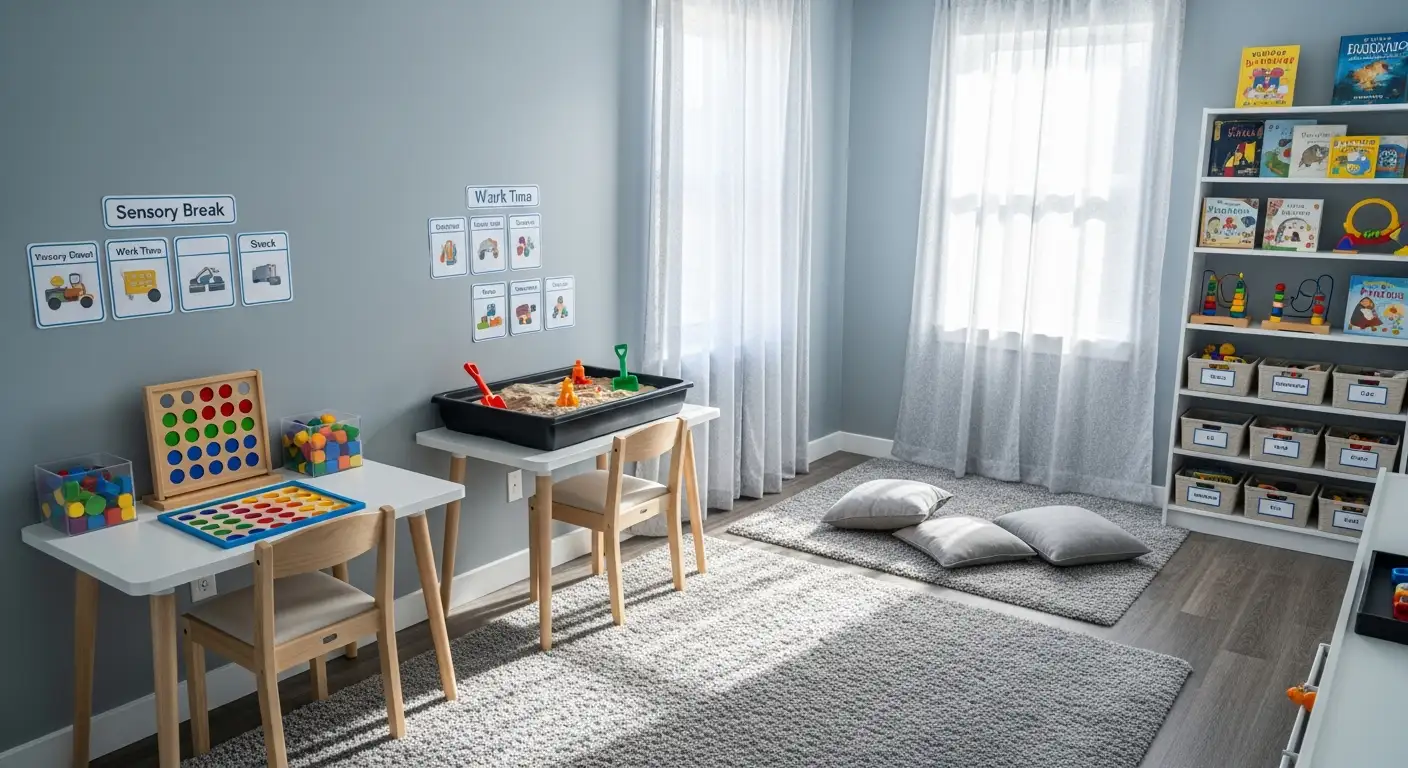Understanding ABA Therapy and Its Role in Behavioral Transformation
Applied Behavior Analysis (ABA) is a scientifically validated approach widely recognized for its effectiveness in reducing problematic behaviors and fostering positive development in children. Particularly, it plays a crucial role in managing and decreasing defiant behaviors associated with conditions like autism spectrum disorder (ASD) and Oppositional Defiant Disorder (ODD). This article explores how ABA works, its techniques, and why it remains a cornerstone in behavioral interventions for children displaying oppositional and defiant behaviors.
Core Principles and Mechanisms of ABA Therapy in Addressing Defiance

What are the core principles and mechanisms of ABA therapy related to reducing defiant behavior?
Applied Behavior Analysis (ABA) is a widely recognized, evidence-based approach for improving behaviors associated with autism spectrum disorder (ASD) and oppositional defiant disorder (ODD). The core of ABA therapy revolves around understanding and modifying behavior through systematic methods.
At the heart of ABA is the ABC model, which involves analyzing three components: antecedents (what happens before a behavior), the behavior itself, and the consequences that follow. By studying these elements, therapists can pinpoint triggers that lead to oppositional or disruptive actions.
Reinforcement plays a pivotal role in ABA. Positive reinforcement involves rewarding desirable behaviors to increase their likelihood. For children with defiant behaviors, ABA aims to teach and reinforce appropriate responses that serve the same function as the problematic behaviors. For example, if a child refuses to transition between activities, a therapist might reinforce compliance with praise or small rewards.
Behavioral intervention plans are uniquely tailored for each child. They often start with Functional Behavior Assessments (FBA) — detailed evaluations of the child's behavior patterns and underlying motivations. FBA helps identify the purpose of challenging behaviors—such as gaining attention, avoiding tasks, or sensory stimulation—and guides the development of effective strategies.
ABA techniques include prompting (guiding the child to perform a desired behavior), systematic fading of prompts, and environmental modifications to support positive change. These methods promote consistency and clear communication, making it easier for children to learn new skills.
Other mechanisms involve decreasing problematic behaviors through extinction (removing rewards that inadvertently reinforce stubborn or disruptive actions) and carefully applying consequences. Though punishment can be part of some strategies, ABA primarily emphasizes positive reinforcement to foster cooperation and emotional regulation.
Overall, ABA's effectiveness relies on a structured, data-driven approach that continually assesses progress and adapts strategies. By breaking down behaviors into manageable steps, teaching alternative responses, and reinforcing success, ABA helps children develop socially acceptable behaviors that improve their quality of life and social interactions.
How ABA Helps Reduce Defiant Behavior in Children

How does ABA therapy help reduce defiant behavior in children?
Applied Behavior Analysis (ABA) is an evidence-based approach that focuses on changing problematic behaviors by applying scientific principles of learning and motivation. In children with oppositional behaviors, ABA therapy plays a vital role in guiding children toward healthier, more adaptive responses.
A primary strategy used in ABA is the employment of reinforcement techniques. Positive reinforcement involves rewarding children when they exhibit desired behaviors, which increases the likelihood that these behaviors will occur again. For instance, a child who successfully follows instructions may receive praise, a preferred activity, or tokens that can be exchanged for treats. This approach encourages children to replace defiant responses with cooperative and socially appropriate behaviors.
ABA employs a structured and personalized approach tailored to each child's specific needs. Behavior analysts conduct functional behavioral assessments to identify the reasons behind challenging behaviors. Based on this understanding, individualized intervention plans are designed, breaking down complex skills and behaviors into small, manageable steps. Consistent data collection during sessions ensures that interventions are effective and adjusted as needed.
Teaching alternative, appropriate responses is a core element of ABA. Instead of merely stopping negative behaviors, therapy focuses on teaching children suitable ways to communicate their frustrations or needs. For example, a child might learn to use words or gestures to express discomfort instead of acting out or arguing.
Several behavioral techniques are used to promote emotional regulation and reduce defiance. Prompting supports, such as visual cues or physical guidance, help children learn correct responses. Contingent observation, where children are allowed to observe peers demonstrating positive behaviors, can motivate imitation. Pivotal Response Treatment, a specific ABA method, encourages motivation by involving children in activities they find interesting, making learning more engaging.
In addition to teaching skills, ABA addresses issues like frustration, sensory sensitivities, and social cues comprehension. By enhancing understanding and emotional regulation, children are less likely to act out in defiance. The approach also emphasizes involving parents and caregivers, ensuring consistency across environments and promoting the generalization of learned behaviors.
Through a combination of reinforcement strategies, tailored interventions, and skill-building techniques, ABA helps children develop better self-control, communication, and social skills. These improvements significantly reduce oppositional behaviors and foster healthier interactions with family, peers, and teachers.
| Technique | Description | Application in Managing Defiance |
|---|---|---|
| Positive Reinforcement | Reward attempts at desired behavior | Encourages compliance and reduces oppositional responses |
| Discrete Trial Teaching (DTT) | Breaking skills into small steps with prompts | Builds foundational skills to promote positive behaviors |
| Naturalistic Teaching | Learning in natural environments | Builds real-world skills that generalize outside therapy sessions |
| Prompting | Use of cues to evoke correct responses | Supports learning new behaviors and responses to frustration |
| Token Economy | System of earning tokens for correct behavior | Reinforces good behavior and promotes self-monitoring |
| Functional Behavior Assessment (FBA) | Analyzing behavior to understand its purpose | Identifies triggers and guides intervention strategies |
Overall, ABA therapy provides a comprehensive framework that combines behavioral science with compassionate, personalized care, making it a powerful tool for reducing defiant behaviors in children.
ABA Therapy and Its Connection to Autism and ODD Treatment

How is ABA therapy connected to the treatment of autism and Oppositional Defiant Disorder (ODD)?
Applied Behavior Analysis (ABA) therapy is a widely recognized, evidence-based approach used primarily to support children with autism spectrum disorder (ASD). Its core focus is on improving social, communication, and adaptive skills through structured, positive reinforcement strategies. By breaking down complex behaviors into manageable steps, ABA helps children develop skills that facilitate better interaction and independence.
In addressing autism, ABA employs techniques such as Discrete Trial Teaching, Naturalistic Teaching, and Token Economy to promote learning in natural environments. These strategies not only reinforce desired behaviors but also help minimize problematic or disruptive actions. As a result, children with ASD often show measurable improvements in social engagement and daily functioning.
ABA therapy also plays a significant role in managing oppositional behaviors typical of Oppositional Defiant Disorder (ODD). Children with ODD frequently exhibit anger, irritability, arguing, and defiance. ABA adapts to this challenge by focusing on reinforcement of positive behaviors, teaching self-control, and reducing defiance through consistent routines, clear boundaries, and rewards systems.
For children dealing with both autism and ODD, ABA becomes an even more vital tool. Therapists carefully identify individual triggers and develop personalized plans that incorporate sensory considerations, communication supports, and social skills training. Collaborative approaches involving families are essential, ensuring strategies extend beyond therapy sessions into daily life.
Behavioral interventions guide children to replace negative responses with healthier, socially appropriate behaviors. Parent management training, social skills training, and communication strategies are combined with ABA to foster emotional regulation and cooperation.
In addition to direct behavioral techniques, ABA emphasizes data collection and progress monitoring, allowing professionals to tailor interventions dynamically as children develop and their needs change. The therapy's flexibility and emphasis on positive reinforcement make it highly effective in cultivating lasting behavioral improvements.
Overall, ABA serves as a versatile, comprehensive approach in treating children with autism and co-occurring ODD, supporting their emotional resilience, social functioning, and compliance, ultimately enhancing their quality of life.
Techniques and Strategies in ABA for Managing Oppositional and Defiant Behaviors

What are the main techniques and strategies used in ABA therapy to manage oppositional and defiant behaviors?
Applied Behavior Analysis (ABA) employs a variety of methods to help children develop positive behaviors and reduce oppositional and defiant tendencies. These techniques focus on understanding behaviors, reinforcing desired responses, and shaping new skills through structured and naturalistic approaches.
One of the primary strategies is Discrete Trial Teaching (DTT). This method involves breaking down skills into small, manageable steps. Each trial begins with a clear instruction, followed by the child's response, and then a reinforcement or correction. DTT allows for repeated practice and immediate feedback, helping children learn specific behaviors efficiently.
Naturalistic Teaching and Pivotal Response Treatment (PRT) are other effective approaches. They involve teaching skills within the child’s natural environment, such as during play or daily routines. PRT emphasizes pivotal areas like motivation and self-management, which, when targeted, can lead to broader improvements in communication, social skills, and behavior.
Positive reinforcement is central to ABA. Using tangible rewards like tokens or privileges, children are motivated to exhibit desired behaviors such as cooperation and compliance. Token Economy systems provide incentives for completing specific tasks or demonstrating appropriate social behaviors, which encourages consistency and motivation.
Contingency management strategies, including prompting (gestural, verbal, physical), shaping, and prompting fade, guide children toward appropriate responses. These methods involve gradually reducing prompts as the child's skills improve, fostering independence.
In addition to these techniques, ABA incorporates parent and caregiver training to ensure consistent application of strategies across settings. Creating predictable routines, providing clear instructions, and establishing natural consequences at home and in school settings help reinforce positive behaviors.
Ultimately, combining behavioral techniques like DTT, naturalistic teaching, reinforcement systems, and environmental consistency forms a comprehensive approach. This integrated strategy aims to reduce oppositional behaviors, promote emotional regulation, and support the child's social and academic development.
| Technique | Description | Purpose |
|---|---|---|
| Discrete Trial Teaching | Breaks skills into small steps with repetitive trials | Teaching specific skills and reducing defiance |
| Naturalistic Teaching | Teaching within everyday activities and play | Generalizing skills in natural environments |
| Pivotal Response Treatment | Focuses on motivation and pivotal areas for broader skill development | Enhancing communication and social interaction |
| Token Economy | Using tokens or points as rewards for desired behaviors | Motivating compliance and positive behavior reinforcement |
| Prompting and Fading | Guided cues followed by gradual removal of assistance | Encouraging independence and reducing prompts |
This broad array of techniques fosters behavioral improvements in children with oppositional and defiant tendencies, especially when combined with family involvement and consistent routine management.
Benefits and Evidence Supporting ABA in Decreasing Defiant Behaviors
What benefits and evidence support the use of ABA therapy for decreasing defiant behaviors?
Applied Behavior Analysis (ABA) is widely recognized as an effective approach for reducing oppositional and disruptive behaviors in children. Strong research evidence underscores its success in teaching children socially acceptable responses, improving self-regulation, and enhancing problem-solving skills.
ABA employs structured techniques rooted in scientific principles. These include positive reinforcement, which encourages desired behaviors, and behavior modification strategies tailored to each child's needs. By breaking down complex behaviors into manageable steps, ABA helps children learn and practice new skills while decreasing problematic behaviors.
Numerous studies, including comprehensive meta-analyses, demonstrate significant behavioral improvements. Children undergoing ABA exhibit better communication, social interaction, and adaptability. These benefits are especially pronounced in children diagnosed with autism spectrum disorder (ASD), Attention Deficit Hyperactivity Disorder (ADHD), and other developmental challenges.
One of ABA’s distinguishing strengths is its focus on generalizing learned skills across different settings—from therapy sessions to home and school—ensuring lasting change. This approach also promotes independence, empowering children to manage their behaviors more effectively in various environments.
Overall, the scientific rigor behind ABA and its proven track record make it a highly regarded intervention for children exhibiting defiant behaviors. Its methods not only decrease problematic actions but also foster the development of positive social and emotional skills necessary for lifelong success.
Specialized Behavioral Interventions for PDA and Other Challenges
Are there specific behavioral intervention methods tailored for children with PDA and other behavioral challenges?
Yes, there are approaches specifically designed to support children with Pathological Demand Avoidance (PDA) as well as other behavioral difficulties. While Applied Behavior Analysis (ABA) forms the foundation for many behavioral interventions, it is often adapted to meet the needs of children with PDA.
Traditional ABA techniques focus on positive reinforcement and breaking down behaviors into manageable steps. However, for children with PDA, strategies are modified to emphasize collaboration, flexibility, and reducing anxiety.
One central adaptation involves using indirect language and offering choices rather than direct commands. This approach helps children feel more in control, decreasing resistance and defiance. Visual supports, such as schedules and social stories, assist children in understanding routines without feeling overwhelmed.
Sensory strategies also play a crucial role. Incorporating sensory diet activities, calming techniques like deep breathing, mindfulness, and environmental modifications can help children manage sensory overload and reduce agitation.
Environmental modifications may include providing quiet spaces, incorporating preferred activities, and offering sensory-friendly tools. These adjustments create a secure environment that encourages participation.
In addition to ABA, multidisciplinary approaches often combine therapies like cognitive-behavioral therapy (CBT) and occupational therapy, which address emotional regulation and sensory needs. Parent training and caregiver involvement are vital to ensure consistency and reinforce strategies at home.
Overall, the most effective treatments are highly individualized and flexible, focusing on enhancing the child's emotional resilience, reducing anxiety, and fostering cooperation. Tailoring interventions to each child's unique profile allows for better engagement and progress.
Supporting flexibility in behavior through gentle, gradual changes
Gradual adjustments, positive reinforcement, and celebrating small successes help children adapt more comfortably to new demands and routines.
Employing sensory and calming techniques
Techniques such as deep pressure, calming brushes, visualization, and sensory breaks can significantly lower anxiety and promote self-regulation.
Collaborative, personalized treatment plans
Involving children in decision-making and respecting their preferences make interventions more acceptable and effective. Regular assessments and data collection guide ongoing adjustments to strategies.
These specialized approaches demonstrate that with tailored, compassionate, and versatile methods, children with PDA and other behavioral challenges can develop stronger coping skills, improve their cooperation, and experience a better quality of life.
Educational Resources for Implementing ABA Effectively
What educational resources are available for parents, caregivers, and practitioners on using ABA to address defiance?
Implementing Applied Behavior Analysis (ABA) effectively requires access to a variety of educational tools and training options. Fortunately, many resources are designed to support parents, caregivers, teachers, and practitioners in delivering consistent and impactful interventions.
One prominent source is the Behavior Analyst Certification Board (BACB), which offers certification programs such as Registered Behavior Technician (RBT), Board Certified Assistant Behavior Analyst (BCaBA), and Board Certified Behavior Analyst (BCBA). These programs provide foundational and advanced training in ABA principles, strategies, and ethical guidelines. Completing these certifications ensures that practitioners are well-equipped to develop and implement tailored behavior plans.
In addition to formal certification programs, numerous online courses and workshops are available through professional organizations and educational platforms. These courses often focus on practical techniques like positive reinforcement, functional behavior assessments, and managing oppositional behaviors such as defiance and tantrums.
Practical tools and visual aids also play a significant role in ABA implementation. Resources such as visual schedules, token economy charts, ABC data collection forms, and social stories help children understand expectations and reinforce desired behaviors. Many websites and organizations provide free or low-cost downloadable resources designed for easy integration into daily routines.
Parent and practitioner workshops are invaluable for hands-on learning and peer support. These workshops cover topics like behavior management strategies, creating supportive learning environments, and coaching on effective communication with children exhibiting defiant or challenging behaviors. Webinars and local training sessions help reinforce skills and offer opportunities for questions and personalized guidance.
Consultation with certified behavior analysts (BCBAs) is another essential resource. BCBAs can perform functional behavioral assessments to identify the causes of problematic behaviors and offer tailored interventions. They also provide ongoing coaching, training, and supervision to caregivers and educators, ensuring consistency and effectiveness in ABA techniques.
Accessing these educational resources enables all involved parties to confidently and competently apply ABA strategies, ultimately supporting children with autism, ODD, and related conditions in developing essential skills and reducing disruptive behaviors.
| Resource Type | Description | Examples & Links |
|---|---|---|
| Certification Programs | Formal training for practitioners and caregivers on ABA principles | BACB's RBT, BCaBA, BCBA certifications |
| Online Courses & Webinars | Flexible learning options for specific ABA strategies | Courses from ABA Professional Certification Programs |
| Practical Tools | Visual aids, data collection forms, social stories | Downloadable resources from ABA organizations |
| Parent and Practitioner Workshops | Hands-on training and peer support | Local and virtual training sessions |
| Behavior Analyst Consultation | Personalized assessments and coaching | Services provided by BCBAs |
Having access to comprehensive education and practical tools ensures that ABA interventions are implemented with fidelity and sensitivity. This holistic approach helps children achieve better behavioral outcomes and supports their overall development.
Supporting Families and Building Skills for Lasting Change

What are effective strategies for families to support behavioral improvements and manage defiance?
Supporting children with autism and oppositional defiant disorder (ODD) requires a multifaceted approach that empowers families as primary supporters of behavioral change. Family-centered strategies focus on creating predictable, supportive environments that reduce triggers for challenging behaviors.
One of the most effective approaches is Parent Management Training (PMT). This training teaches parents to use positive reinforcement techniques, consistent discipline, and effective communication. By reinforcing desired behaviors and calmly addressing oppositional actions, parents can foster cooperation and emotional resilience.
Establishing routine schedules is another vital tactic. Consistent routines help children know what to expect, reducing anxiety and the likelihood of outbursts. Clear boundaries and rules, with well-defined consequences, give children a sense of security while guiding their behavior.
Involving children in routine development allows them to feel a sense of control and ownership, which can decrease oppositional behaviors. Offering choices within routines—such as selecting activities or the order of tasks—promotes independence and decision-making skills.
Patience and consistent application of discipline are essential. Applying the same rules and consequences across all caregivers prevents confusion and inconsistency, which can undermine behavioral goals. This consistency helps strengthen understanding and adherence.
Using visual supports, such as social stories, pictorial schedules, or visual cues, can help children understand expectations and navigate social interactions more smoothly. These tools can also serve as calming aids during stressful moments.
Building a collaborative relationship with therapists, clinicians, and educators ensures a unified approach. Regular communication allows for shared strategies and reinforces the skills children are learning in different settings.
Furthermore, focusing on developing social and independence skills prepares children for future challenges. Social skills training, ongoing emotional regulation techniques, and opportunities for peer interactions are vital components.
In summary, families play a crucial role in managing behaviors associated with autism and ODD. Through consistent routines, positive reinforcement, involvement in planning, and collaborative efforts, families can foster long-term improvements, helping children develop resilience, social competence, and greater independence.
Conclusion: Toward a Better Future with ABA-Driven Behavioral Change
What benefits and evidence support the use of ABA therapy for decreasing defiant behaviors?
Applied Behavior Analysis (ABA) has established itself as a cornerstone in managing challenging behaviors, including defiance and oppositional conduct. Its strength lies in a scientifically grounded approach that leverages reinforcement, data collection, and behavioral modification techniques to encourage positive responses.
Research shows that ABA therapy can significantly reduce problematic behaviors in children. It addresses the root causes by breaking down behaviors into smaller, manageable parts and systematically teaching alternative, appropriate responses. This method helps children develop essential social skills and emotional regulation, ultimately leading to improved cooperation.
Numerous studies, including comprehensive meta-analyses, provide robust evidence supporting ABA's effectiveness. Children receiving ABA interventions often exhibit notable gains in communication, social interactions, and adaptive skills. These improvements are not only evident in structured therapy settings but also generalize to everyday environments like home and school.
ABA's tailored approach means that interventions are personalized to each child's unique needs and challenges. This customization enhances engagement, promotes consistency across different settings, and fosters independence. Over time, children learn to better manage their impulses and behaviors, reducing oppositional tendencies.
The positive outcomes associated with ABA extend beyond immediate behavior change. They include increased self-control, better peer relationships, and improved academic performance. These benefits contribute to the child's long-term well-being and societal participation.
In summary, the scientific evidence and observed improvements underscore ABA as a highly effective intervention for decreasing defiant behaviors. Its structured, data-driven framework ensures continuous assessment and adaptation, making it a vital tool in promoting behavioral improvement and supporting children toward healthier, more adaptive lives.
| Technique | Description | Benefits |
|---|---|---|
| Reinforcement | Using rewards to encourage desirable behavior | Promotes positive responses and increases likelihood of behavior repetition |
| Data Collection | Tracking behavior patterns to guide interventions | Ensures tailored strategies and measurable progress |
| Skill-Breaking | Dividing complex behaviors into smaller steps | Facilitates learning and mastery of behaviors |
| Natural Environment Training | Teaching in real-life settings | Enhances generalization and practical skills |
| Pivotal Response | Focus on core skills to produce broad improvements | Accelerates skill development and behavior change |
Overall, ABA techniques work synergistically to achieve meaningful behavior change, providing children with the tools needed for social success and emotional health.
Enhancing Lives Through Evidence-Based Behavioral Strategies
ABA therapy stands out as a scientifically validated, highly effective approach for reducing defiant behavior in children. Its core principles—focused on understanding behavior through the ABC model, reinforced by positive, individualized interventions—empower children to develop emotional regulation, social skills, and adaptive responses. When combined with family involvement, educational support, and tailored strategies for behavioral challenges like PDA, ABA creates a comprehensive pathway to lasting behavioral improvements. Early and consistent intervention maximizes these benefits, helping children thrive socially, emotionally, and academically, paving the way for healthier, more cooperative futures.
References
- Autism and Oppositional Defiant Disorder: an Overview
- ABA for School Readiness in Children with ODD - AutismCOE
- Oppositional Defiant Disorder and Autism - Golden Care Therapy
- Is ABA Therapy Only for Autism? - Applied Behavior Analysis Degrees
- Strategies For Adapting ABA Therapy For Children With PDA ...
- ABA Therapy for ODD: A Parent's Guide - NeuroLaunch.com
- Oppositional defiant disorder (ODD) - Diagnosis and treatment
- Oppositional Defiant Disorder (ODD): Symptoms & Treatment
- What is a Behavior Interventionist? A Plain Language Guide












